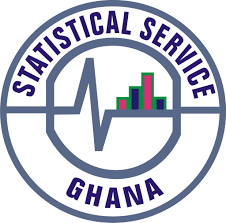Ghana’s unemployment rate fell slightly at the end of 2024, but youth joblessness continues to pose a major challenge, according to new data from the Ghana Statistical Service (GSS).
Figures released on Thursday showed that the national unemployment rate declined from 13.3% in the third quarter of 2024 to 13.1% in the fourth quarter, based on surveys of more than 9,000 households.
Government Statistician, Dr. Alhassan Iddrisu, described the decline as a modest sign of progress but warned that it masks persistent economic distress.
“In 2024, youth unemployment remains alarmingly high at 22.5% for ages 15 to 35 and 32% for ages 15 to 24. This highlights the urgent need for expanded and more focused labour market practices, such as retraining and re-skilling programmes, to combat skills mismatch and boost employability,” he told reporters.
Dr. Iddrisu pointed to the government’s “24-hour economy” initiative as one policy measure aimed at creating more opportunities for Ghana’s youthful workforce. “We can do this through programmes such as the 24-hour economy, which is currently under implementation, to create more flexible and accessible job opportunities,” he said.
The GSS urged the government to intensify apprenticeships, graduate employment schemes, and job placement services, while reforming technical and vocational education to align training with industry demand, especially in digital, industrial and green economy sectors.
“We recommend also that government should provide affordable credit to small businesses to boost job creation, especially for women and youth,” Dr. Iddrisu added.

